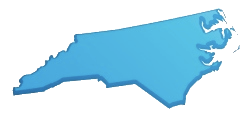North Carolina Teaching Certification

North Carolina Ed. Statistics
| Avg. Elem. Teacher Salary* | $48,560 |
| Avg. Sec. Teacher Salary* | $49,930 |
| Avg. Admin. Salary* | $74,410 |
| Teacher Retention (?) | 92% |
| Vacation Wks/Yr | 15 |
Learn how to become a teacher in North Carolina (or administrator). Choose the description of certification you are most interested in or situation that best describes you:
- Initial Teaching Certification…
- I’m a teacher from another state…
- Teacher Certification Renewal…
- Admin./Principal Certification…
- Alternative Teaching Certification…
- Substitute Teaching Permit…
- None of the above are what I’m looking for…
Getting Involved…
Investing in our future is vitally important and strangely difficult. In order to fight oppression from the greedy and power-hungry elite, to better our ways of life with advancing technology, and to increase our country’s overall views toward the concept of acceptance, we need education to be a priority. Learn how you can be a spoke in this terribly important wheel. See how North Carolina measures up to the rest of the country by viewing the percentage of state revenue going toward education in each state. (see State Education Spending vs. Overall State Revenue).

Learn About Your Governor’s Track Record
Learn about your Governor’s views and voting record with regard to education. (see North Carolina Governor’s website).

Give Your Knowledge Power By Voting
Hold your public servants accountable. It is our duty as residents of Alabama.
Help Make Education A Priority
Initial North Carolina Teaching Certification
During the past ten years, the North Carolina Department of Public Instruction has hired about 10,000 new teachers considered “highly qualified” under newly implemented federal standards. This indicates that they have achieved full certification, earned a bachelor’s degree at minimum, and have demonstrated competency in all academic subject areas they’ll be teaching.
Those who wish to become licensed professional educators in North Carolina should be heartened by the news that the state places such importance on the quality of education that students in its public school system receive. In an environment where students are respected, teachers also receive the support and respect they deserve. Find schools offering teaching certification programs in North Carolina.
Education Requirements
The North Carolina Department of Public Instruction Licensure Section (919-807-3310 in state and 800-577-7994 out of state) has established qualifications for becoming a licensed educator in the state, requiring that you either:
- Graduate from a state-approved educator preparation program through a regionally accredited institution (all of which are at the bachelor’s level or higher)
OR
- Complete the alternative route to teacher licensure in another state, earn a bachelor’s degree from a regionally accredited institution, and meet the federal government’s qualifications to be called “highly qualified” (hold a bachelor’s degree and demonstrate competency in the area in which you teach)
A list of regional accreditation agencies may be found here.
If you completed your teacher education in a foreign country, your transcript must be evaluated for U.S. equivalency by an international education evaluation service, which will send the report to the NC Department of Public Instruction.
Licensure Options
There are two types of Professional Educator Licenses issued in North Carolina:
- Standard Professional 1 (SP1) – for new teachers with no more than two years of experience, valid for three years
- Standard Professional 2 (SP2)– for teachers with three or more years of experience, valid for five years
Examinations
You can visit the Praxis website for a brief description of testing requirements for North Carolina teacher licensure.
Basic skills testing:
All teachers must pass the Praxis I Basic Skills Exam in Reading, Writing, and Mathematics prior to licensure. Qualifying scores are 176 for Reading, 173 for Writing, and 173 for Mathematics.
You are exempt from taking the Praxis I, or parts of it, if you meet one of the following qualifications:
- SAT – total score not less than 1100, with at least 550 on the Verbal portion – exempts you from taking the Reading and Writing components of the Praxis I
- SAT – total score not less than 1100, with at least 550 on the Mathematics portion – exempts you from taking the Math component of the Praxis I
- ACT – total score not less than 24, with at least 24 on the English test – exempts you from taking the Reading and Writing components of the Praxis I
- ACT- total score not less than 24, with at least 24 on the Math test – exempts you from taking the Math component of the Praxis I
Content area assessment testing:
In order to become licensed to teach in a certain content area, you must pass the corresponding Praxis II exam:
- Birth through Kindergarten – (no Praxis II test is required to become licensed in this area, but passing the Praxis II Early Childhood Content Knowledge test with a score of 155 or more earns you the federal “highly qualified” designation)
- Elementary K-6
- Middle Grades:
- Language Arts
- Mathematics
- Science
- Social Studies
- Secondary Education:
- Anthropology
- Biology
- Chemistry
- Earth Science
- Economics
- English
- Geography
- History
- Mathematics
- Physics
- Political Science
- Science
- Social Studies
- Sociology
- All Grades (K-12):
- Art
- Health Specialist
- Music
- Physical Education
- Reading (Bachelor’s Level)
- Reading (Graduate Level)
- Speech Communication
- World Languages (K-12 or Secondary):
- English as a Second Language
- French
- German
- Latin
- Spanish
- Special Education:
- Adapted Curriculum
- Behaviorally/Emotionally Disabled
- Cross Categorical
- Learning Disabled
- Mentally Disabled
- Severely Profoundly Mentally Disabled
- Visually Impaired
Experience Requirements
Your teacher preparation program in North Carolina will contain two experiential components:
The practicum is a component of college courses on education. The practicum will involve observing a teacher in the classroom specific to the grade level and/or content area you’ll be teaching. At the teacher’s discretion, you and may get a chance to lead the class from time to time.
The student teaching portion of the experience part of your teacher preparation program is when you really get to hone your teaching skills. You are placed into a classroom corresponding to the grade level and content area in which you seek licensure. You will be given opportunities to take over daily classroom teacher duties. Officials from your college’s teacher preparation program will also observe your progress and performance from time to time. Valuable classroom management skills, teaching strategies, and more will be learned during this time.
Document and Application Requirements
If you have completed your educational requirements, experiential component, and passed the necessary examinations, you are ready to submit your application for teacher licensure in North Carolina.
- Complete the Application for a North Carolina Professional Educator’s License
- Have your college’s teacher education program representative complete the Verification by Institution form
- Send official transcripts showing the degree you earned
- Provide copies of your Praxis I and II test scores
- Complete Form OS-HQ for Highly Qualified Status
- Include a self-addressed, stamped envelope if you want any documents returned
- Pay application fees of $85 by check, money order, or certified check (or credit card via this form) payable to the Department of Public Instruction
Send all of the above information to the North Carolina Department of Public Instruction, Licensure Section, 6365 Mail Service Center, Raleigh, NC 27699-6365.
Criminal History Background Check
You do not need to undergo a criminal history background check prior to North Carolina teaching licensure. However, before any North Carolina public school will hire you, a statewide check will be run. More information on this process will be given to you at the time of application for a teaching position.
Contact Information
For a directory to colleges in North Carolina with approved teacher preparation programs, click here.
To contact the North Carolina Department of Public Instruction Licensure Section, call 919-807-3310 in state and 800-577-7994 out of state.
*2019 U.S. Bureau of Labor Statistics data – Conditions in your area may vary.
**Teacher Retention Sources – U.S. Department of Education, National Center for Education, Statistics Schools and Staffing Survey, 1999–2000 (“Public School Teacher Questionnaire,” “Private School Teacher Questionnaire,” and “Public Charter School Teacher Questionnaire”),
and 2000–01 Teacher Follow-up Survey (“Questionnaire for Current Teachers” and “Questionnaire for Former Teachers,” Table 1.01). Washington, DC.
State estimations based on analysis by Richard Ingersoll, Professor of Education and Sociology, University of Pennsylvania, from the National Center for Education Statistics Student and Staffing Survey, and therefore include a slight margin of error.





